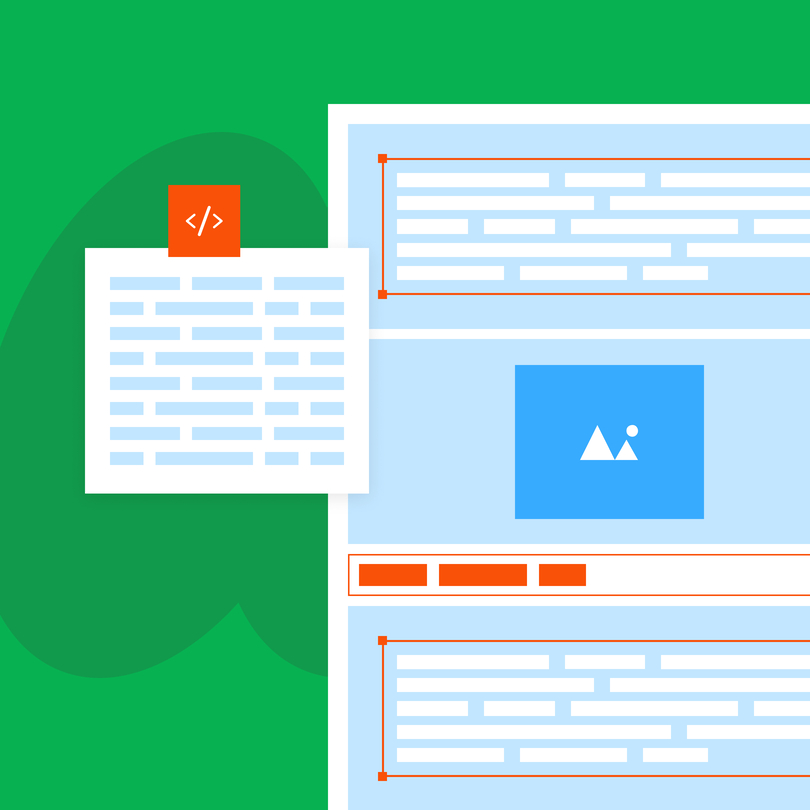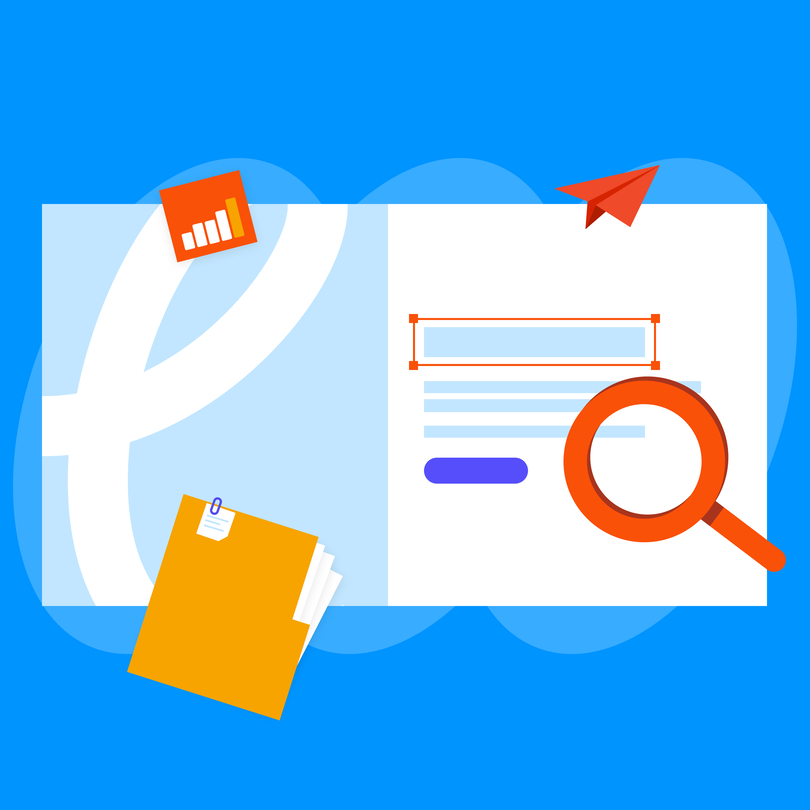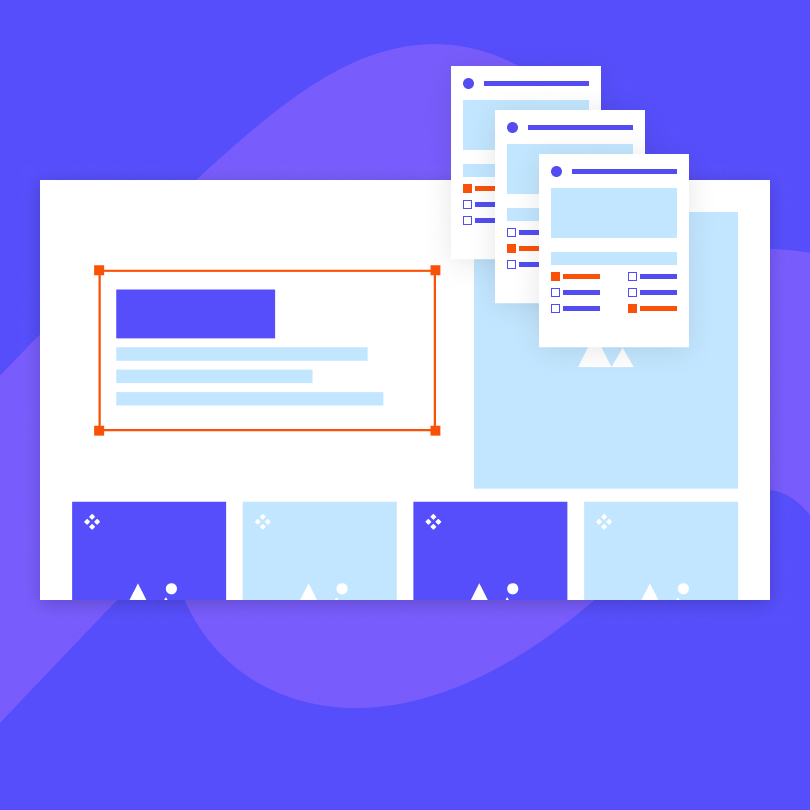As professionals in a highly competitive industry, developers know the harsh truth — time and change wait for no one. Technology is transforming at an accelerated rate, and the only option is to adapt.
Whether you’re an experienced veteran or a newcomer, you must continuously update your coding skills, or risk being left behind. Simply knowing the basics or maintaining the same level of knowledge won’t get you far.
If you want to enter this industry, find a new job, or stay competitive in the job market, it’s crucial to stay aware of trends and new technologies. Since it’s not always easy to understand where and how to start improving your coding skills, you’ll need a guide.
In this article, you’ll discover the necessary tips and tricks to becoming a more skilled coder.
Why Should You Improve Your Coding Skills?
The number one reason to keep honing your coding skills is the constant evolution of technology and the rapid emergence of new programming languages, tools, and frameworks. Tech is changing faster than ever, and further advancements in AI could accelerate this pace.
In fact, changes that once took decades could now happen in as little as a year, or even faster. Even though 70 percent of professional developers don’t perceive AI as a threat to their jobs, staying still is an even greater risk.
You can only remain competitive and relevant in your career if you’re well-versed in the latest technologies and skilled in the most current programming languages. Moreover, updating your coding skills increases your ability to innovate and solve complex problems, which allows you to write high-quality code that leads to more efficient, scalable, and maintainable software.
Common Challenges When Improving Coding Skills
Working on your coding skills often comes with obstacles. We’ll prepare you for these difficulties to know what to expect.
Information Overload
There are already over ten astonishingly popular programming languages, but new ones frequently come to the limelight. Coupled with the continuous growth of tools and frameworks, this can be overwhelming for developers, especially given the sheer amount of material available. As a result, prioritizing learning becomes difficult. For example, you might feel pressured to learn Python, JavaScript, React, and Docker all at once, leading to scattered focus and burnout.
Lack of Practical Application
Many coders spend hours on tutorials or theoretical lessons but struggle to build real-world projects, resulting in knowledge gaps. Without practical scenarios like creating applications or contributing to open-source projects, they struggle when applying concepts in actual development. The consequence of insufficient opportunities to use their knowledge is that coders often find that their learning doesn’t “stick.”
Debugging Difficulties
Beginners may find understanding error messages or knowing where to start looking when a program breaks daunting. It’s common to get stuck on simple bugs, causing frustration and wasted time. Instead of seeing debugging as an opportunity to learn, many view it as a barrier, which impedes their growth.
Inconsistent Practice
Coding is a skill that requires regular practice to improve, yet many learners experience periods of intense activity followed by long breaks. This inconsistency slows progress. Even experienced developers can struggle with this, as it’s easy to lose momentum without daily or weekly coding routines.
Fear of Complex Topics
Being afraid of tackling more demanding tasks, such as data structures and algorithms, can also hold coders back. Learners often avoid these subjects because they seem difficult or irrelevant to their current projects, only to find later that this knowledge is a must-have for advanced problem-solving and more efficient coding.
Imposter Syndrome
This problem affects both new and experienced developers. Some developers feel they aren’t progressing fast enough or don’t belong in the field. This feeling can trigger self-doubt and, in extreme cases, cause some to quit altogether despite making great strides in their learning.
Easy Tips on How to Improve Coding Skills
Here are all the tips you need to boost your coding skills, whether you’re a newbie or a well-versed veteran.
1. Read — a Lot
Since programming is a fast-evolving industry, you must keep up with all the changes, and the best way to do this is to read. Online tutorials are great resources but often overlook the coding fundamentals you’ll find in books.
Prioritize detailed explanations that clarify how each step leads to another. In addition to books, you can also explore relevant eBooks, algorithm and data structure guides, code documentation, API references, open-source project repositories, and technical blogs and articles.
Here are some examples to get you started:
- Eloquent JavaScript by Marijn Haverbeke
- Python Crash Course by Eric Matthes
- Clean Code by Robert C. Martin
- The Pragmatic Programmer by Andrew Hunt and David Thomas
- Introduction to Algorithms by Thomas H. Cormen
- Grokking Algorithms by Aditya Bhargava
GitHub, freeCodeCamp, Hacker Noon, and DEV Community are among the websites and platforms where you’ll find excellent resources.
2. Master the Basics Before Moving to Complex Coding
Coding principles can be frightening for beginners, so it’s best to tackle the underlying principles first. After all, most programming languages share the same foundational concepts.
You may feel ambitious and want to nail C++, but starting with Python or JavaScript will help you understand more complicated variables, data types, control structures, functions, and procedures.
3. Timebox Your Struggles with New Concepts
It doesn’t take long to get stuck in a cycle of frustration when learning new coding principles. Set a strict time limit (e.g., 30 minutes to an hour) to struggle with a problem before seeking help.
Use this method to create a balance between persistence and seeking external resources like documentation or forums. You must acknowledge when to step away and look for guidance to avoid burnout while still building problem-solving resilience.
4. Become a Part of a Coding Community
Interact with industry professionals or those on the same journey as you. Listen to their advice and experiences and share your struggles and ambitions. You can find them on relevant Reddit subreddits or Stack Overflow, as users are typically eager to help and discuss. For instance, if you’re working on code and have a question, these platforms are the best places to go.
5. Join GitHub
GitHub is a vital stop on your learning journey, as this is where you can learn the most and build confidence to share your code. This platform welcomes beginners just as much as experienced developers, so feel free to ask for feedback on your work.
6. Shadow an Open-Source Project Without Contributing
If you don’t yet feel ready to contribute to an open-source project, shadow a project first by following every change in the codebase. Track pull requests, review discussions, and study commit histories.
This will help you see how experienced devs solve problems, write code, and collaborate, all without the pressure of adding your two cents. Moreover, you will passively learn advanced techniques and get an idea of code architecture that you wouldn’t get from tutorials alone.
7. Create Custom Debugging Tools
Rather than relying solely on built-in debugging tools, you can develop your own lightweight debugging scripts or tools. For example, create a function to log specific variables, process states, or performance metrics. During this development, you’ll expand your understanding of the debugging process and learn how to customize it to your needs, making troubleshooting more efficient. Building your tools is a surefire way to grasp how programs run and where things can go wrong, allowing you to spot issues faster in the future.
8. Investigate the Inner Workings of Your Favorite Websites
Are you curious to discover how your favorite websites work? Then start checking their source code and try to pinpoint which processes, steps, and frameworks the developer used.
If you don’t understand something, prepare your questions, and head to one of the communities we mentioned above. Ultimately, tapping into different source codes is great for finding inspiration and accelerating your learning curve.
9. Refactor Other People’s Code
Go a step beyond refactoring your own code by taking existing code from a colleague, a shared project, or even an open-source repository and refactoring it. Focus on improving readability, optimizing performance, or simplifying logic.
Refactoring someone else’s code forces you to think critically about coding styles and choices while considering different perspectives.
10. Build Something Backward
To truly understand how a system works, try deconstructing a project you admire and rebuilding it from scratch. Reverse-engineer the logic of a website, app, or tool, starting with the final product and working backward to replicate its features.
As a result, you’ll have to think deeply about design patterns, architecture, and dependencies, while also discovering why certain decisions were made in the original project.
How to Improve Coding Logic Skills
To be an excellent developer, you should think critically and solve problems through code. This requires breaking down complex problems into manageable parts and piecing together efficient solutions.
Here are some key strategies to improve coding logic skills.
Understand and Master Data Structures
Data structures like arrays, linked lists, hashmaps, trees, and graphs are the building blocks of programming logic. Learning how to get these done allows you to organize data and apply the right structure to a given problem.
When you understand how data structures work and their time complexities, you’ll start to see patterns in how to approach coding problems logically. Study how different data structures perform under various operations (e.g., searching, sorting, insertion) to make better choices in your code.
Break Problems Down into Smaller Parts
A core part of improving logic is learning how to decompose problems. Don’t try to solve the entire problem in one go. Instead, break it down into smaller pieces that are easier to tackle.
Each small piece should represent a simple task that your code can handle. This process not only clarifies your thought process but also helps identify any underlying issues without unnecessary hassle.
Learn Multiple Ways to Solve a Problem
There’s often more than one way to solve a coding problem. As you develop your logic, try to solve the same problem using different methods.
For example, you could solve a problem using brute force, and then refactor it using a more efficient approach like dynamic programming.
Practice Debugging and Understanding Errors
When you’re debugging, you need to trace the flow of your code, isolate issues, and figure out why things aren’t working the way you initially expected. Moreover, regular debugging can help you develop a logical approach to identifying and fixing errors.
How to Improve Coding Problem-Solving Skills
Another skill you’ll need to be a successful developer is the ability to effectively analyze a problem and design a solution, using both creativity and technical knowledge.
The following tips will help you sharpen your coding problem-solving skills.
Understand the Problem Before Coding
Instead of jumping into the matter blind, spend time reading and re-reading the problem to genuinely understand the requirements, constraints, and edge cases. Visualize the problem and break it down on paper before writing any code.
Thanks to this habit, you’ll learn to puzzle out complex problems with more clarity and focus on the actual issue, having to spend less time on trials and errors.
Use a Problem-Solving Framework
Adopt a consistent problem-solving framework, like IDEAL:
- Identify the problem
- Define the constraints
- Explore possible solutions
- Act on the best solution
- Look back and review
You need a structured approach to systematically break down problems and avoid feeling overwhelmed. It also prevents you from making random guesses, ensuring your approach toward a solution is methodical.
Solve Problems Across Different Domains
One of the best ways to sharpen your problem-solving capabilities is to work on challenges from different domains like algorithmic puzzles, web development, systems programming, or AI. These require different approaches and thinking.
For example, tackling system design problems helps you think about scalability and architecture, while solving competitive coding challenges boosts your ability to work with constraints and optimize solutions.
Work on Projects Without Following Tutorials
Tutorials are great for learning, but to improve problem-solving skills, you must work on projects without being dependent on step-by-step instructions. Pick a project that requires you to build something from scratch, whether a personal app, website, or automation tool.
You’ll have to confront real-world problems and find creative solutions to things like bugs, feature implementation, and optimization, which will improve your confidence.
Conclusion
Discovering how to improve your coding skills is a fun yet demanding process. You might make many mistakes along the way and doubt yourself, but don’t let these obstacles stop you. Every challenge contributes to your learning curve and brings you closer to your goal. If you need support from experienced developers or someone to help you with your code, you can always work with professionals who provide web development services.
Check the following resources for more information on coding and development.





